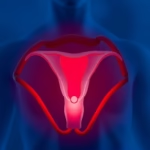We will be talking about high blood pressure when sick, a condition that many people experience yet often overlook. When faced with illness, the body goes through various changes, and for individuals with pre-existing high blood pressure, these changes can exacerbate their situation. This article aims to provide insight into what high blood pressure is, how it relates to sickness, and effective management strategies.
High blood pressure, also known as hypertension, occurs when the force of blood against the artery walls is too high. It is often called the “silent killer” because it typically shows no symptoms until significant damage has occurred. The American Heart Association considers blood pressure readings above 130/80 mmHg to be high. When sick, the body experiences physical stresses such as inflammation, pain, and even medication interactions, which can elevate blood pressure even further. This can lead to complications such as stroke, heart attack, or kidney disease. Understanding how to manage high blood pressure during illness is vital for long-term health. This article delves into various aspects of high blood pressure when sick, providing valuable tips and advice.
Understanding High Blood Pressure
High blood pressure is often a result of various factors, including genetics, lifestyle choices, and chronic health conditions. When fighting an illness, the body goes into defense mode, which can trigger physiological responses that raise blood pressure. This reaction can unearth pre-existing hypertension in individuals who may have been previously asymptomatic. Stress hormones, fluid retention, and inflammation contribute to these increases, making it essential to monitor blood pressure closely when you’re sick. Recognizing the signs and symptoms of elevated blood pressure is key to preventing serious health issues.
Common Causes of High Blood Pressure When Sick
Several factors can contribute to high blood pressure during illness. Fever, pain, and anxiety increase the body’s stress levels, leading to vasoconstriction, which raises blood pressure. Certain medications, especially decongestants and pain relievers, can also contribute to elevated levels. Additionally, dehydration from fever or vomiting can also raise blood pressure as the body attempts to retain fluids. Understanding these causes can help individuals manage their health better during sickness.
How Sickness Impacts the Body’s Vascular System
The vascular system is incredibly complex and deeply affected by sickness. An increase in heart rate and blood flow occurs as the body works to fight off illness, leading to temporary spikes in blood pressure. Inflammatory responses trigger the release of substances that can narrow blood vessels, contributing further to hypertension. This knowledge can help individuals understand why they might feel different when sick and empower them to take appropriate action.
Monitoring Blood Pressure at Home
For those who struggle with high blood pressure, home monitoring can be a game-changer. Blood pressure cuffs are available for personal use and can provide real-time insights. Keeping a log allows for better management during periods of illness. Individuals should ensure they’re using the apparatus correctly and noting any significant changes in their readings. Immediate action should be taken when readings exceed usual levels, entering a discussion with healthcare professionals for appropriate adjustments in lifestyle or medication.
Dietary Considerations for Managing High Blood Pressure
A heart-healthy diet is crucial for managing blood pressure, especially when sick. Foods rich in potassium, magnesium, and fiber can help regulate pressure levels. It’s beneficial to consume fruits, vegetables, fish, and whole grains. During sickness, individuals should be cautious about sodium intake as it can cause fluid retention, leading to elevated blood pressure. Staying hydrated is also important, but one should monitor intake levels to avoid overhydration that can strain the system. Knowing which nutrients to include or avoid can significantly aid in managing hypertension when sick.
Stress Management Techniques
When experiencing illness, stress levels can rise due to concerns about symptoms and recovery. Elevated stress increases blood pressure, creating a vicious cycle. Practicing techniques such as deep breathing, meditation, and gentle physical activities like yoga can help alleviate stress. Finding support from loved ones and healthcare professionals can also mitigate feelings of isolation or anxiety that often accompany illness, helping to keep blood pressure in check.
Medications and High Blood Pressure
For individuals already taking medications for hypertension, it is crucial to communicate with healthcare providers during periods of sickness. Some medications might need adjustment, especially if illness leads to interactions with new medications used for symptoms. It is wise to have an up-to-date list of medications and discuss any side effects with a healthcare professional. Always follow prescribed routines even when feeling unwell to ensure that blood pressure remains controlled.
When to Seek Medical Attention
Recognizing when to seek help is vital for managing high blood pressure when sick. Symptoms such as severe headache, chest pain, and difficulty breathing may be signs that immediate medical attention is required. If blood pressure readings are consistently high (>180/120 mmHg), it’s critical to contact a healthcare professional immediately. Being aware of these benchmarks can empower individuals to take charge of their health and receive timely assistance.
The Role of Regular Check-Ups
Regular check-ups are essential for managing chronic conditions like high blood pressure. During these visits, healthcare professionals can evaluate if changes in your condition have occurred due to illness or other stressors. Preventative care can reduce the risks associated with hypertension, providing opportunities for early intervention if necessary. Routine check-ups help keep your health on track, ensuring that you stay informed and prepared.
Conclusion
High blood pressure when sick is a multifaceted issue that requires attention and management for overall well-being. Throughout this article, we have explored the causes, effects, and management strategies concerning hypertension during illness. The body’s response to sickness can complicate already existing high blood pressure, making it crucial to monitor levels and adopt a healthy lifestyle. Maintaining a balanced diet, practicing stress management, and ensuring regular medical check-ups are practical approaches to mitigate risks. Knowledge is power, and understanding how to manage high blood pressure during sickness can lead to a healthier, more stable life.
Frequently Asked Questions:
- What is high blood pressure?
The force of blood against artery walls is too high, often leading to significant health issues. - How does sickness affect blood pressure?
Illness can cause stress, inflammation, and medication interactions, all contributing to elevated blood pressures. - When should I monitor my blood pressure during illness?
It is advisable to monitor blood pressure regularly, especially if you have a pre-existing condition. - What dietary changes can help manage high blood pressure when sick?
Focus on a diet rich in fruits, vegetables, and whole grains while minimizing salt intake. - When should I seek medical help for high blood pressure?
Consult a healthcare professional if readings exceed normal levels consistently or if you experience severe symptoms.
Further Reading
3.5 tog sleeping bag temperature guide
What Type of Psychotherapy Is Best for Anxiety?







